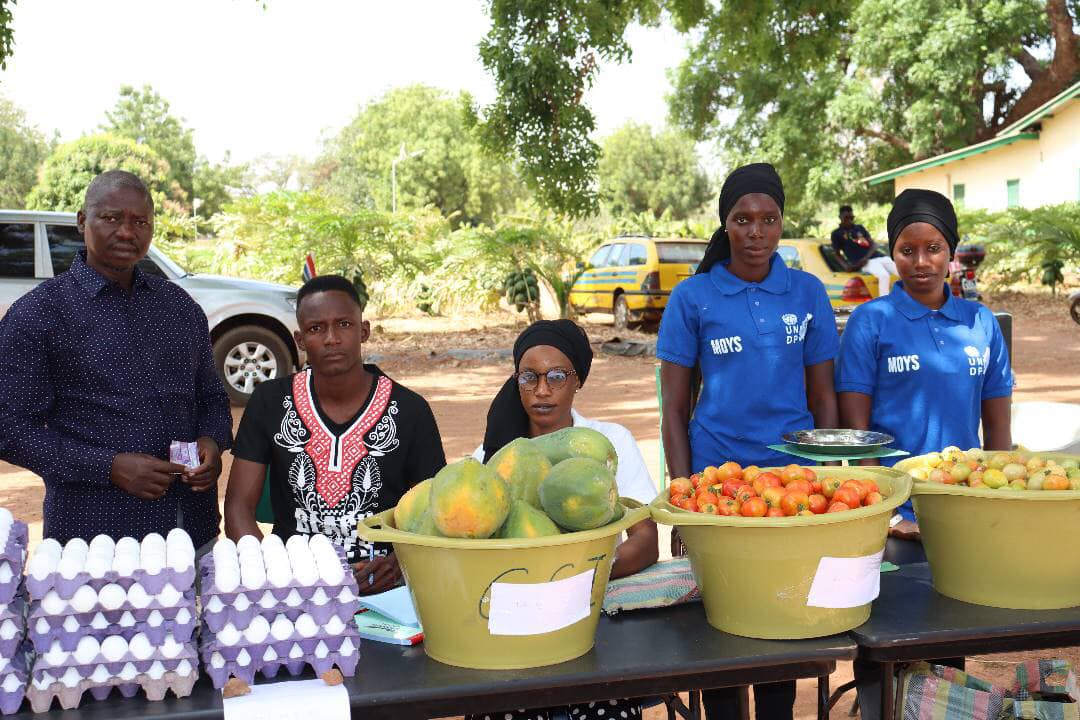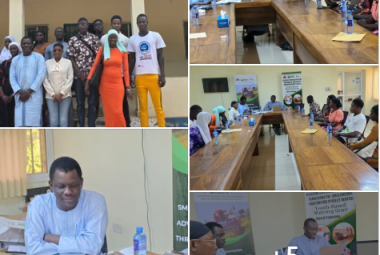In The Gambia, youth unemployment, despite many initiatives and interventions by government and development partners is still growing at an alarming rate of 41.5%. Young people remain the cream of the nation in terms of development and leadership. However, like in many African countries, many young people are struggling to secure a job. The transition from school to the labour market still remains a challenge with limited opportunities and inadequate skills. Increased employment is a development goal here in the Gambia.
The devastating effects of youth unemployment can result to poverty, irregular migration, increased crime rate and mental health problems, thus called for concerns.
The Gambia like many sub Saharan African countries is experiencing losses among its young people perishing in the Mediterranean Sea through irregular migration.
In the quest to eradicate unemployment and create job opportunities through skill acquisition among young people in The Gambia, the Government of The Gambia established Gambia Songhai Initiative (GSI) after The Gambia’s Ministries of Youth and Agriculture visited the Songhai Regional Centre in Benin in 2014, where they studied the centre’s integrated sustainable agricultural development strategy for employment creation and poverty reduction.
The GSI project is designed to tackle growing youth unemployment and increasing poverty among rural population of The Gambia.
The replicated idea in The Gambia aims at training youth, women, returnees and the marginalized populace on agribusiness/agroforestry (Poultry, Ruminant, Market Garden, Cash Crop, and aquaculture, Food Processing, Bee Keeping and Bio Gas).
Since its establishment in 2015, the centre has graduated over 278 students so far, 136 female and 142 males. In recent years, many youth have started their own businesses in agro farming. These young agriculturists are created employment opportunities for many youth and themselves thus addressing the problem of youth unemployment and self-food sufficient in the country.
Understanding the need to contribute towards addressing the problem MOYS through it project GSI came into being to provide sustainable livelihoods skills in the above mentioned areas so as to help reduce poverty, youth unemployment, and environmental degradation among other things.
Since 2018 the program has been funded by government of the Gambia through the Ministry of Youth & Sports (MOYS) with some support from partners UNDP amongst others.
The training duration is one year with 80 - 90% hands on training in the various Agriculture livelihood skill set plus business planning and entrepreneurship training.
Participants are drawn from all the seven (7) regions and about 50/50 gender ratio in terms of enrolment. Feeding, accommodation, stipend, little start-up capital, continuous monitoring and couching post-graduation.
The 9th batch has thirty five (35) Students and Twenty seven (27) staff ranging from drivers, cleaner, cooks, trainers, technical director, accountant, matron, to general services headed by a project coordinator.
In a Chat with Mr Mbye Saine, the project coordinator of the site, GSI’s principal business is training of youths and equipping them with the skills to manage small and medium-size, commercially viable and environmentally sustainable agricultural production and agriculture-based enterprises.
He added that GSI has plans to accelerate its development of human, technical, and organizational capacity to improve and scale-up production, services and training of rural youths on a sustainable basis.
Mr Saine disclosed that it will also help to tackle the multiple challenges of food insecurity, environmental degradation and youth unemployment.
“The ministry together with the government and its development partners are working to address some of the challenges the centre is faced with,” he said.







